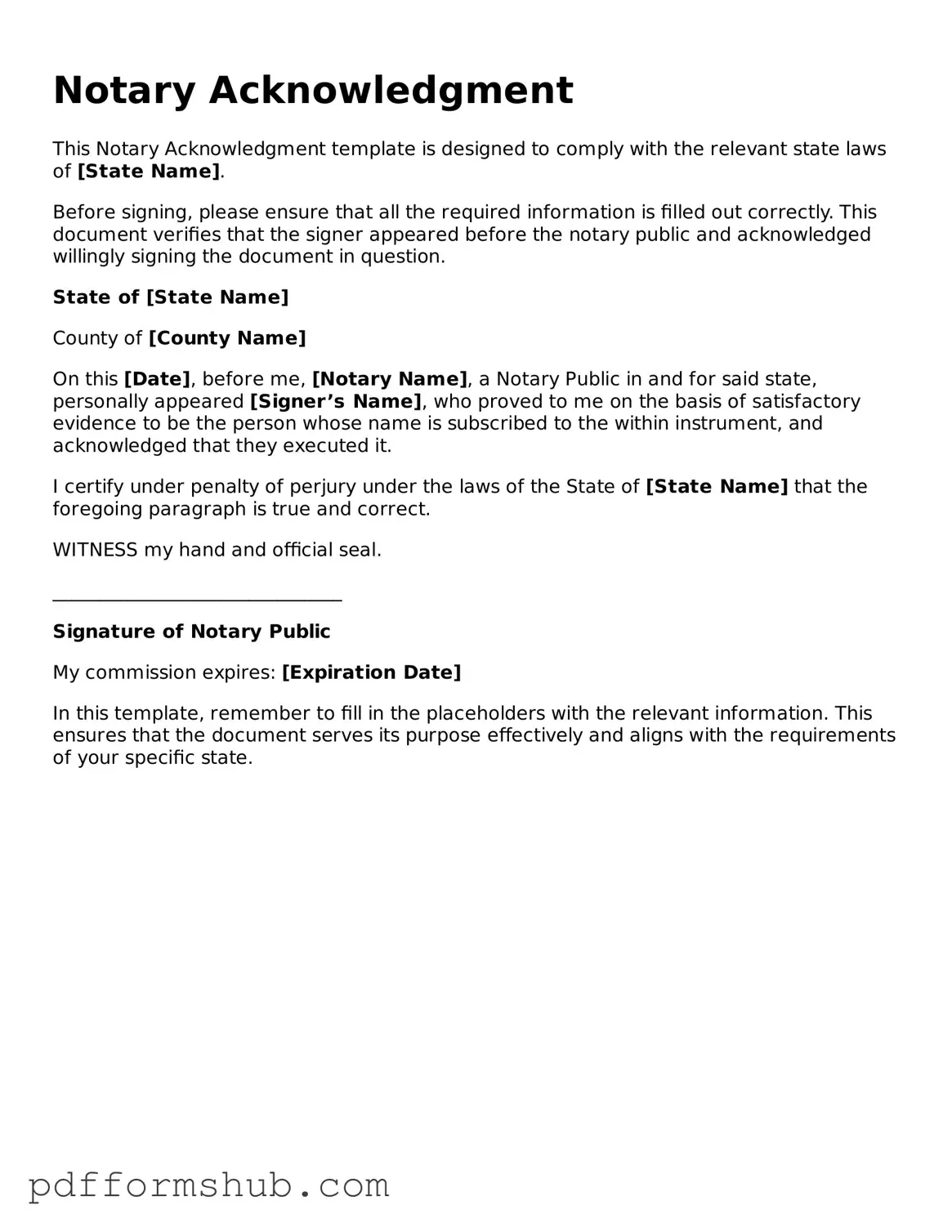Valid Notary Acknowledgement Form
The Notary Acknowledgement form is a legal document used to verify the identity of a signer and confirm that they signed a document willingly and without coercion. This form plays a crucial role in ensuring the integrity of various legal transactions. To get started, fill out the form by clicking the button below.
Customize Form

Valid Notary Acknowledgement Form
Customize Form

Customize Form
or
Free PDF Form
Short deadline? Complete this form now
Complete Notary Acknowledgement online without printing hassles.